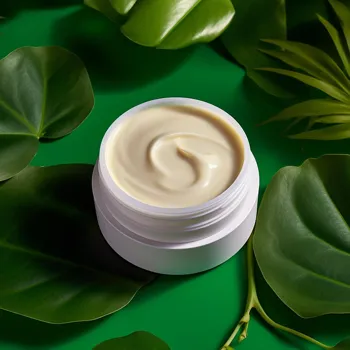Unlock the secrets to glowing skin! Learn about different skin types & personalized care tips. Dive in now!
In the diverse landscape of India, where the sun shines bright and the weather can swing from
scorching heat to humid monsoon, understanding your skin type is paramount. It's the first step towards achieving that healthy, glowing skin that we all aspire for.

Forget generic skincare routines; knowing your skin is like knowing your body – it allows you to tailor your care for optimal results. So, let’s dive into the basics and discover the best ways to pamper the skin you're in!
Identifying and caring for different skin types
The most common skin types are Normal, Oily, Dry, Combination and Sensitive. Each type has distinct characteristics and needs specific care to maintain its health and appearance. Identifying your skin type isn't rocket science; it's about paying attention to how your skin feels and behaves.
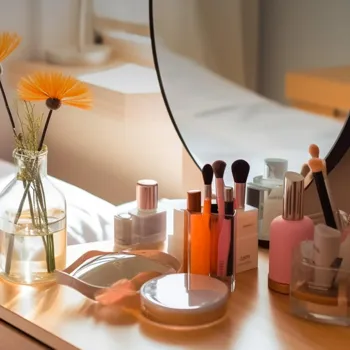
A simple way to determine your skin type is the "blotting paper test." Wash your face with a gentle cleanser and pat it dry. After about an hour, gently press a blotting paper on different areas of your face – forehead, nose, cheeks, and chin.
Hold the sheet up to the light to see how much oil was absorbed. If the paper is saturated with oil, you likely have oily skin. If it has minimal oil, you probably have dry skin. If oil is mostly from your forehead and nose with drier cheeks, you've got combination skin.
And if the paper shows very little to no oil and your skin feels comfortable, congratulations, you probably have normal skin! Now, let's explore each skin type in more detail and learn how to give it the TLC it deserves.
Maintain normal skin with gentle care and quality products
Normal skin is often considered the "gold standard" – it’s neither too oily nor too dry, with good circulation and a smooth texture. If you have normal skin, you likely experience very few breakouts, minimal sensitivity, and small pores. However, don't get complacent!

Even normal skin needs proper care to maintain its healthy balance. Gentle cleansing twice a day is crucial, followed by a light, hydrating moisturizer. Sunscreen is a must, even on cloudy days, to protect your skin from harmful UV rays.
Exfoliating once or twice a week will help remove dead skin cells, keeping your skin radiant. Look for skincare products labeled "for all skin types" or "for normal skin" and avoid harsh ingredients like alcohol or strong fragrances, which can disrupt your skin's natural balance.
A simple routine with quality products will keep your normal skin glowing.
Manage oily skin with proper cleansing, exfoliation, and oil-free products
Oily skin is characterized by excessive sebum production, leading to a shiny appearance, enlarged pores, and a tendency to develop acne and blackheads. While oily skin may age slower due to its natural moisture, it requires careful management to prevent breakouts.
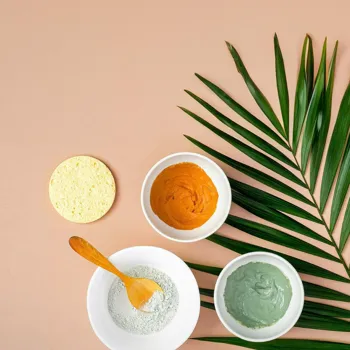
Cleansing with a gentle foaming cleanser twice a day is essential to remove excess oil and impurities. Look for products containing salicylic acid or benzoyl peroxide, which can help unclog pores and reduce inflammation.
Oil-free moisturizers are a must to hydrate the skin without adding extra grease. Avoid heavy creams and oil-based products, which can exacerbate oiliness. Blotting papers are your best friend for controlling shine throughout the day.
Exfoliating regularly will help prevent clogged pores and keep your skin looking fresh. Remember, even oily skin needs hydration, so don't skip the moisturizer!
Dry skin care: hydrate, moisturize, avoid harsh products, use humectants, drink water, night creams
Dry skin lacks moisture, leading to a tight, flaky, and sometimes itchy feeling. It may also be more prone to fine lines and wrinkles. If you have dry skin, you need to focus on hydration and moisturizing. Use a gentle, creamy cleanser that doesn’t strip your skin of its natural oils.
Avoid hot showers, which can further dry out your skin. Apply a rich moisturizer immediately after showering to lock in moisture. Look for ingredients like hyaluronic acid, glycerin, and shea butter, which are excellent humectants and emollients.
Use a humidifier, especially during dry months, to add moisture to the air. Avoid harsh soaps, alcohol-based toners, and abrasive scrubs. Exfoliate gently only once a week to remove dead skin cells without irritating your skin.
Don’t forget to drink plenty of water to hydrate your skin from the inside out. Night creams are also helpful to give extra nourishment to the skin while your body rests.
Combination skin care: balance oily T-zone with dry cheeks, use tailored products
Combination skin is a mix of oily and dry areas, typically with an oily T-zone (forehead, nose, and chin) and dry cheeks. This skin type requires a tailored approach to address the different needs of each area. Use a gentle cleanser that won't strip your skin of its natural oils.
You may need to use different products for different areas of your face. For example, you can use a light, oil-free moisturizer on your T-zone and a richer moisturizer on your cheeks. Exfoliate regularly to prevent clogged pores in the oily areas, but be gentle on the dry areas.
You can also use targeted treatments, such as a clay mask on your T-zone to absorb excess oil. Pay attention to how your skin reacts to different products and adjust your routine accordingly.
Look for products labeled "for combination skin," which are typically formulated to balance the different needs of this skin type.
Sensitive skin care tips: avoid irritants, patch test products, moisturize, use sunscreen
Sensitive skin is easily irritated and prone to redness, itching, and burning. It can be triggered by various factors, including skincare products, fragrances, and environmental aggressors. If you have sensitive skin, you need to be extra cautious about the products you use.

Look for fragrance-free, hypoallergenic products that are specifically formulated for sensitive skin. Avoid harsh ingredients like alcohol, sulfates, and parabens. Always patch test new products on a small area of your skin before applying them to your entire face.
Use a gentle cleanser and avoid scrubbing your skin too hard. Moisturize regularly to keep your skin hydrated and protected. Sunscreen is crucial to protect your skin from UV rays, which can further irritate sensitive skin.
Consider natural remedies like aloe vera or chamomile to soothe irritated skin.
essential skincare practices for all skin types
Regardless of your skin type, there are some essential skincare practices that everyone should follow for healthy, glowing skin:
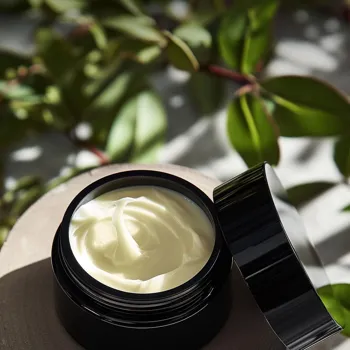
Sunscreen
Always wear sunscreen with an SPF of 30 or higher, even on cloudy days. Apply liberally and reapply every two hours, especially if you're sweating or swimming.

Hydration
Drink plenty of water to keep your skin hydrated from the inside out.
Healthy Diet
Eat a balanced diet rich in fruits, vegetables, and antioxidants.

Avoid Touching Your Face
This can transfer dirt and bacteria to your skin, leading to breakouts.

Clean Makeup Brushes
Clean your makeup brushes regularly to prevent the buildup of bacteria.

See a Dermatologist
If you have persistent skin problems, consult a dermatologist for professional advice.
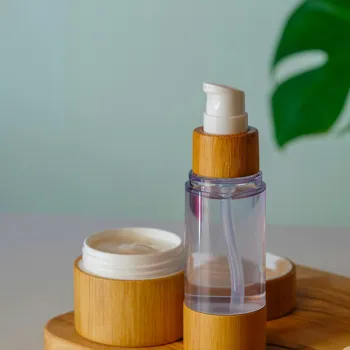
Know your skin type for better skincare results
Understanding your skin type and following a tailored skincare routine can make a world of difference in the health and appearance of your skin. So, take the time to get to know your skin and give it the care it deserves. Your skin will thank you for it!
